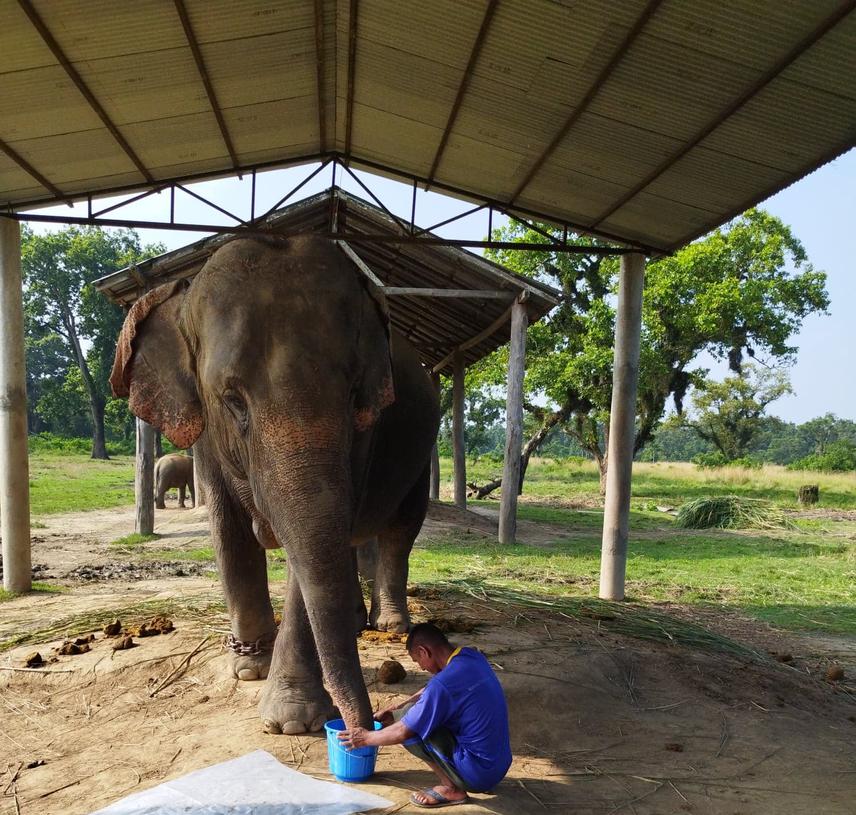Arjun Pandit
Mycobacterium tuberculosis has already been confirmed in captive elephants in different protected areas of Nepal. The main objective of this project is to clarify the current situation of elephant tuberculosis in Nepal, explore from the wild elephants and to aware the situation among the elephant workers, park authorities and policy workers. Faecal samples of captive and wild elephants and opportunistic necropsy sample will be collected and then PCR, DNA extraction as well as genomic sequencing will be carried out to find out the situation of elephant tuberculosis. Awareness campaign will be carried out among elephant handlers about tuberculosis. In conclusion, the project will create awareness about the situation of elephant Tuberculosis and also help in developing the early warning mechanism and finally help in the conservation of elephants in Nepal.

Trunk wash.
Tuberculosis has been confirmed in almost 24% elephants out of about 250 captive elephants of Nepal (Paudel et al. 2018, Paudel et al., 2019). In the study of two captive elephants of Chitwan National Park of Nepal, mixed lineages of Mycobacterium tuberculosis was identified (Paudel et al., 2019).
The project will be carried out in Parsa National Park (PNP), Chitwan National Park (CNP), Bardia National Park (BNP), Shuklaphanta National Park (SNP) and Koshi Tappu Wildlife reserves (KTWR) of Nepal. All these national parks are located in Terai region of Nepal. Sample collection (faecal samples, trunk wash samples and necropsy samples) will be collected from the captive and wild elephants of these national parks and public awareness campaign will be conducted among the people of these regions. Laboratory examination of the samples, especially Culture examination, DNA extraction, Polymerase Chain reaction (PCR) and genomic sequencing will be conducted in various laboratories like wildlife laboratory of National Trust for Nature Conservation and laboratory of German Nepal Tuberculosis Project (GENETUP). Various analytical work and data interpretation will be carried out in cooperation with various departments and laboratories of Hokkaido University, Japan.
Expected results of the projects include mainly the early detection of the tuberculosis in elephants of various conservation sites of Nepal, which will help to develop the early warning mechanism of the disease especially to the government of Nepal, conservationists and also to public. Similarly, the project would help to create awareness among general public, elephant handlers and also to management team of the conservation sites mainly about the disease transmission pattern, trend of tuberculosis, treatment protocol and way to control the disease. The awareness campaign would thus be beneficial to control the transmission of the disease from elephant to humans and vice versa. In this way, the project is helpful for conservation of elephants in Nepal.
Header: Collection of faecal and trunk drip sample.